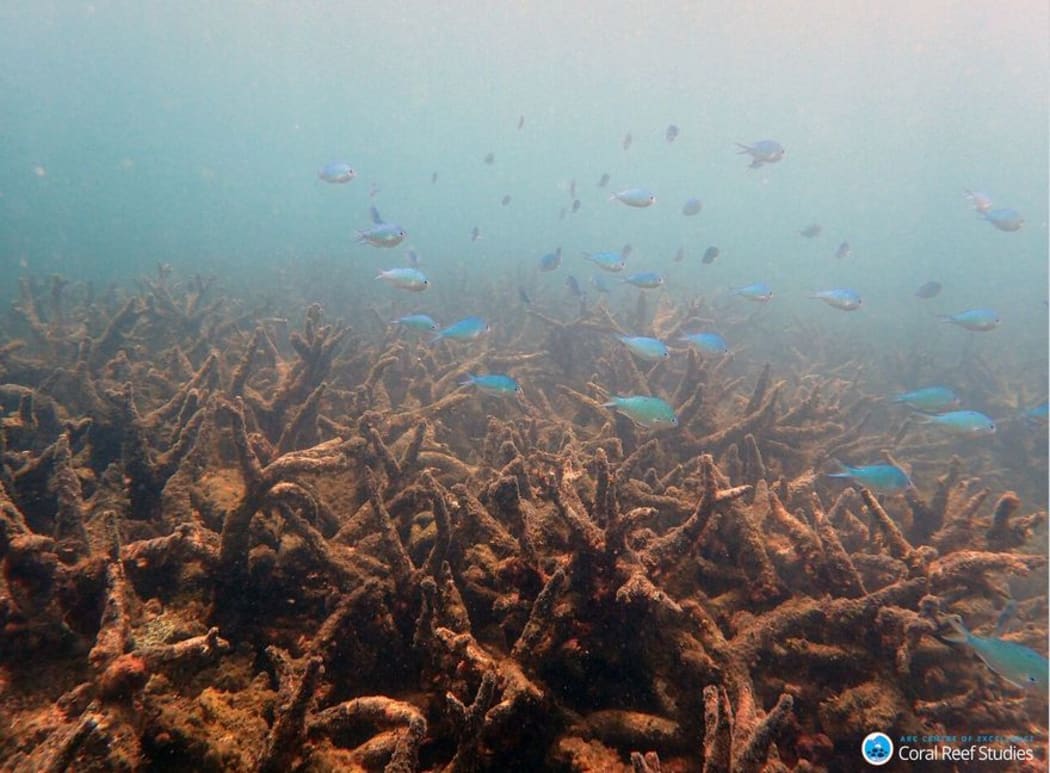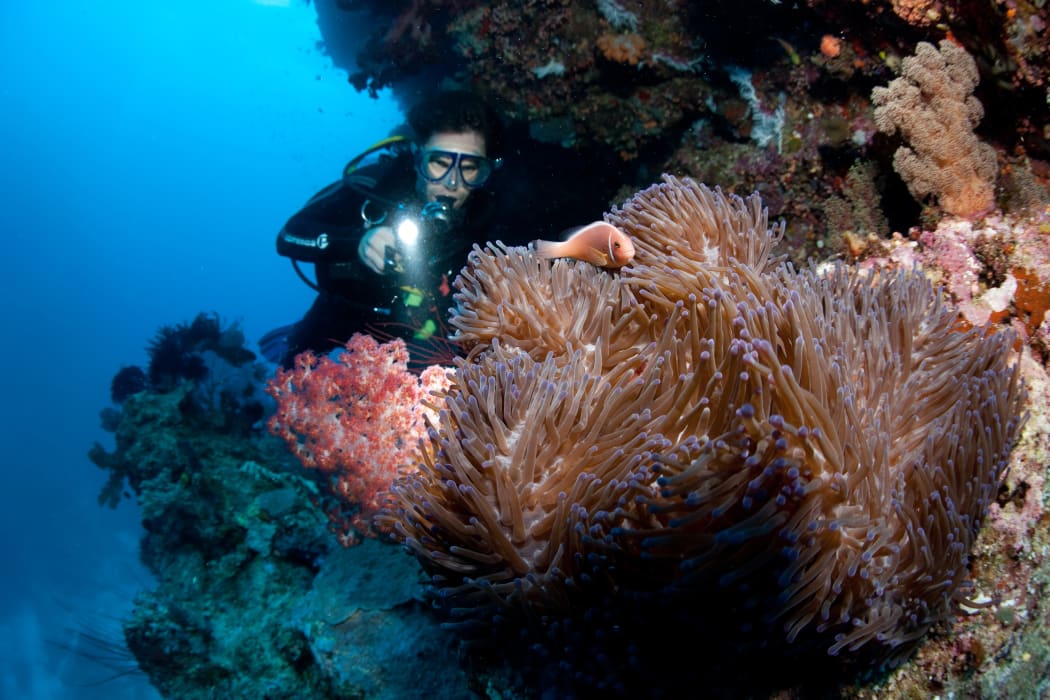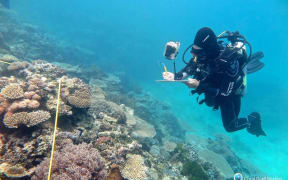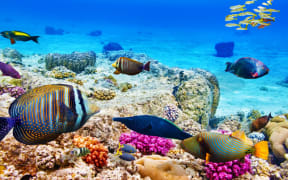Australia's Great Barrier Reef can be saved only if urgent steps are taken to reduce global warming, new research has warned.

Staghorn corals killed by coral bleaching on Bourke Reef, on the Northern Great Barrier Reef. Photo: Greg Torda / ARC Centre of Excellence for Coral Reef Studies.
Attempting to stop coral bleaching through any other method will not be sufficient, according to scientists.
The research, published in the journal Nature, said bleaching events should no longer be studied individually, but as threats to the reef's survival.
The bleaching - or loss of algae - in 2016 was the worst on record.
"Climate change is the single greatest threat to the Great Barrier Reef," said co-author Prof Morgan Pratchett, from Queensland's James Cook University.
"It all comes down to what the governments in Australia and around the world do in terms of mitigating further rises in temperatures."
Coral bleaching is caused by rising water temperatures resulting from two natural warm currents.

The huge reef is highly prized for its biodiversity. Photo: AFP / Image Source
It is exacerbated by man-made climate change, as the oceans are absorbing about 93 percent of the increase in the earth's heat.
Bleaching happens when corals under stress drive out the algae known as zooxanthellae that give them colour.
If normal conditions return, the corals can recover, but it can take decades, and if the stress continues the corals can die.
Lead author Professor Terry Hughes warned bleaching events had become "the new normal".
Last week, an aerial survey had shown evidence of mass bleaching in consecutive summers for the first time, he said.
The scale of the damage will be examined in the next three weeks by the National Coral Bleaching Taskforce, a collaboration of scientists and reef managers.
Dr Pratchett said he remained optimistic the reef could recover, but the "window of opportunity" to curb emissions was closing.
"It's the number one thing we need to think about now to save the reef," he said.
Improving fishing practices or water quality would not be enough.
The reef - a vast collection of thousands of smaller coral reefs stretching from the northern tip of Queensland to the state's southern city of Bundaberg - was given World Heritage status in 1981.
The UN says it is the "most biodiverse" of all the World Heritage sites, and of "enormous scientific and intrinsic importance".
- BBC




